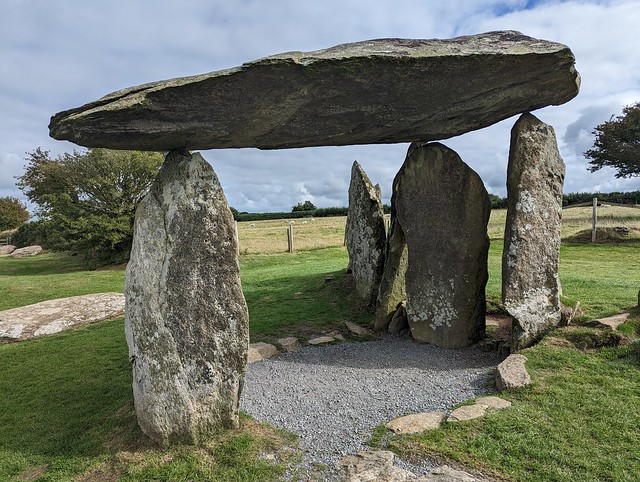Well, it's the end of 2022 and I've got an odd feeling. The last few years I've started by expressing relief that the year is over. For the first time since 2015 I'm not going to write some variant of "thank goodness this year has finished". It has been a difficult year at times, but overall I think it has worked out well. I have certainly (once again) worked far too much, and I ended the year with COVID but overall I give this one a passing grade. But what did I actually do other than work? Well, let's find out. It can't all have been Elden Ring and Deep Rock Galactic (again).
- 12 posts on this blog (13 including this one) - down on last year, but eighth consecutive year of a post per month
- Another year of the Year in Pictures - eighth year and we're up to 39 photographers
- 316 Github contributions - up from last year
- Wrote RPG Sword Forms application
- Wrote a simple guide to upgrading to Rails 7 (which apparently GDS used - gosh)
- Replatformed all my apps when Heroku stopped doing a free tier (guide to come!)
- Completed Elden Ring
- Beat Malenia, Blade of Miquella without using any cheese or summons (I'm proud of myself...)
- Lots of reading
- A full year of solid exercise with a personal trainer
- Established a good physiotherapy regime
- Made some recruitment videos - this is work, but the important point is my video editing is now smooth enough to focus on the output rather than having to look up every last interaction
- Went on a date!
- Another year of the Saturday morning exercise class
- Built a LEGO Infinity Gauntlet with lights
- Learned to carve letters in wood
- Summer baking and BBQ cooking classes
- Made a picture for my Mum
- Yet more instagramming
- Loads more photos on my Flickr stream
- I also turned 40, which included a lovely trip to Pembrokeshire
Resolution count - 5.5/10. Down on last year, AND I worried I'd made them too easy!
It has been an odd year. Very tiring in places, and once again I've worked far too much. I didn't feel I'd done anything and my resolution count is going down, yet the list above is much longer than usual and I don't think I've scraped the bottom of the barrel pulling it together. So I'm clearly doing things, just not the things I intended. I can live with that, but I would like the things I do to have a greater impact on me so I actually remember them. Interestingly, unlike other years, the above list is spaced across the year rather than being loaded into the last three months so maybe I've achieved something approaching balance? I also didn't have three months off work and still did Many Things so clearly I've started recovering some energy to be able to do them.
Speaking of balance, we should definitely take a quick look at work. I spent nine months as a contractor before formally being appointed to my first full director role at Macmillan Cancer Support. After 2021 that was definitely a good boost for my self-esteem! I also helped set up the new version of the London Data Board, then got myself appointed onto it. This coming year, I need to grow into this new form of work - looking ahead to decide what I need to learn to be better at it.
Looking forward to 2023, I'm going to write the same thing I write every year. I need to spend less time working and more time living. Last year I stated my intention to do more creating "things" and the above list shows I made a decent go at that. I want to do more again in 2023 - ideally maturing those skills I've been picking up the last few years so I can be more excited about the things I'm making. I also want to get out and about somewhere - I'm not great with travelling off my own back so maybe I can change that.
More than this, I want to revisit what I wrote at the end of last year's summary. I have starting pulling together my sense of wonder and continuing to restore my zest for life is going to be the main focus for next year. Hopefully this will also be reflected in my writing on this blog too. Less of the "this is hard" and more of the "this is interesting".
2023. Bring it on.



